CONTINUOUS TENSES IN ENGLISH GRAMMAR
5000 so'm

CONTINUOUS TENSES IN ENGLISH GRAMMAR
Continuous Tenses in English Grammar
Continuous Tenses (also known as progressive tenses) describe actions that are ongoing — those that are happening now, were happening in the past, or will be happening in the future. Understanding continuous tenses is an essential step toward mastering English grammar and improving fluency.
What is a Tense?
A tense is a grammatical category that shows the time when an action occurs — past, present, or future. Each tense also expresses the aspect of the action — whether it’s simple, continuous, perfect, or perfect continuous.
What is Verb Tense?
Verb tense shows both when an action happens and how long it lasts. English has 12 main verb tenses (and in extended study, up to 16 forms including past future tenses). Continuous tenses describe actions in progress at a particular time.
Continuous Tense Definition
When a verb expresses an action that is, was, or will be continuing at a specific time, it is said to be in the continuous tense. There are three main types:
- Present Continuous – an action happening now
- Past Continuous – an action that was happening at a specific time in the past
- Future Continuous – an action that will be happening at a specific time in the future
1. Present Continuous Tense
Form: Subject + am/is/are + verb-ing
Usage: Describes actions happening now or temporary situations.
Examples:
- I am studying English grammar.
- She is cooking dinner right now.
- They are playing football in the park.
Rules:
- Use am with “I” → I am writing.
- Use is with singular subjects → He is talking.
- Use are with plural subjects → We are learning.
2. Past Continuous Tense
Form: Subject + was/were + verb-ing
Usage: Describes an action that was ongoing at a certain moment in the past.
Examples:
- I was reading when the phone rang.
- They were watching TV at 9 p.m. yesterday.
- It was raining heavily last night.
3. Future Continuous Tense
Form: Subject + will be + verb-ing
Usage: Describes an action that will be in progress at a specific time in the future.
Examples:
- I will be studying at 8 p.m. tonight.
- She will be traveling to London next week.
- They will be working on the project tomorrow.
Perfect Continuous Tenses Overview
Perfect continuous tenses combine the ideas of duration and continuity using “have been” or “had been.”
- Present Perfect Continuous: I have been studying for two hours.
- Past Perfect Continuous: I had been working before he arrived.
- Future Perfect Continuous: I will have been learning English for five years by 2026.
Continuous Tense Formulas Summary
| Tense | Formula | Example |
|---|---|---|
| Present Continuous | Subject + am/is/are + V-ing | She is reading. |
| Past Continuous | Subject + was/were + V-ing | They were talking. |
| Future Continuous | Subject + will be + V-ing | I will be studying. |
| Present Perfect Continuous | Subject + have/has + been + V-ing | He has been working. |
| Past Perfect Continuous | Subject + had + been + V-ing | We had been waiting. |
| Future Perfect Continuous | Subject + will have been + V-ing | They will have been studying. |
Examples of Continuous Sentences
Present Continuous:
- The children are playing in the park.
- I am cooking dinner.
- He is watching TV.
Past Continuous:
- She was reading when the phone rang.
- They were traveling all night.
Future Continuous:
- I will be writing an exam at this time tomorrow.
- We will be working on our project next week.
Perfect Continuous Examples
- I have been waiting for you since morning. (Present Perfect Continuous)
- He had been studying English for two years before he moved abroad. (Past Perfect Continuous)
- By 2030, she will have been teaching for 20 years. (Future Perfect Continuous)
Common Mistakes with Continuous Tenses
- Do not use continuous forms with stative verbs (like, know, want, believe).
- Incorrect: I am knowing the answer. ✅ Correct: I know the answer.
- Incorrect: She is having a car. ✅ Correct: She has a car.
Why Continuous Tenses Matter
Mastering continuous tenses helps learners express ongoing actions accurately, improve their speaking flow, and better understand natural English communication. These tenses form the foundation of fluent conversation and written expression.
Conclusion
Continuous tenses show that time in English isn’t static — it moves, evolves, and flows with our actions. By understanding their structure and correct usage, learners can build confidence in real-life communication and storytelling.
“Grammar is the map — continuous tenses help you navigate the journey of time.”
=== Taqdimot 1 ===
CONTINUOUS TENSES IN
ENGLISH GRAMMAR
=== Taqdimot 2 ===
PLAN:
1. What is the tense?
2. What is the tense of the verb?
3. List of verb tenses: how many tenses are there in English?
4. To give information about tenses
5. To interest pupils in studying English
=== Taqdimot 3 ===
CLASS RULES:
This class agrees that everybody should…
• Smile!
• Be nice to each other
• Listen when someone else is talking
• Switch mobile phones to silent or off
=== Taqdimot 4 ===
WHAT IS THE TENSE ?
Verb tenses are changes or additions to verbs to show when an action occurred: in the past, present or future. Phrasal verb tense is also used for grammatical aspects, which add more detail about the duration or time required for an action. When you combine the four grammatical aspects with past, present and future, you get the twelve basic verb tenses in English.
Verb tenses are essential to speaking English correctly, but despite their variety of forms and functions, they can be confusing. In this guide, we give a brief overview of English tenses, including when to use them and how to form them, as well as many examples of verb tenses.
=== Taqdimot 5 ===
WHAT IS VERB TENSE?
What is verb tense? Verb tenses show when an action occurred and also how long it lasted. The main tenses of verbs are past, present and future. There are also additional aspects that provide additional information, such as the duration of the action, which action occurred first, or whether a past action influences the present. These grammatical aspects are simple tense, perfect tense, continuous tense and perfect continuous tense.
=== Taqdimot 6 ===
LIST OF VERB TENSES: HOW MANY TENSES
ARE THERE IN ENGLISH?
List of verb tenses: how many tenses are there in English? The standard tense in English is the present tense, which is usually the root form of the verb. The past and future tenses often require changes or additions to the root form, for example the suffix –ed for the past tense and the modal verb will for the future tense. However, for each past, present and future tense there are four different aspects that add additional detail. For example, a long time shows that the action is ongoing. It can be used in the present (she is sleeping), past (she was sleeping) or future (she will sleep). Past, present and future tenses
=== Taqdimot 7 ===
PAST, PRESENT AND FUTURE TENSES PAST
Past, present and future tenses Past, present and future are the central divisions of time in English. The present represents actions that are happening now, the past represents actions that happened previously, and the future describes actions that will happen later. Simple time The simple tense is a grammatical aspect that refers to the normal forms of past, present and future tense – nothing special! Unlike other aspects, it does not add any new information. As the name suggests, simple tenses are the easiest to form and have the fewest rules.
=== Taqdimot 8 ===
PERFECT TENSE
Perfect tense Defining perfect tense is a little more complicated. It is used for actions that relate to other points in time, either completed or ongoing. For example, in the sentence “I have played football since I was a child,” the perfect tense indicates that the action has constantly happened in the past and is still happening in the present. In contrast, in the sentence “I played football when I was a child,” the simple past tense indicates that the action happened only in the past and has nothing to do with the present. In the perfect tense, the auxiliary verb have is conjugated with the past participle of the main verb.
=== Taqdimot 9 ===
LONG TIME CONTINUOUS TENSES
Long time We use continuous tenses (also known as progressive tenses) to indicate ongoing actions or actions that occur some time before completion. For example, the phrase “They study all night” means that the study lasts many hours before it ends. Note that you don’t usually use the continuous tense with state verbs such as «want», «love», «have» and «need». In continuous tenses, the auxiliary verb be is conjugated together with the present participle or the –ing form of the main verb.
=== Taqdimot 10 ===
ENGLISH VERB TENSES
1. Simple Past Tense 7. Present Perfect Tense
2. Past Progressive Tense 8. Present Perfect Progressive Tense
3. Past Perfect Tense 9. Simple Future Tense
4. Past Perfect Progressive Tense 10. Future Progressive Tense
5. Simple Present Tense 11. Future Perfect Tense
6. Present Progressive Tense 12. Future Perfect Progressive Tense
=== Taqdimot 11 ===
=== Taqdimot 12 ===
16 TENSES
01. Simple Present Tense
02. Present Continuous/ Progressive Tense
03. Present Perfect Tense
04. Present Perfect Continuous/ Progressive Tense
05. Simple Past Tense
06. Past Continuous Tense
07. Past Perfect Tense
08. Past Perfect Continuous Tense
=== Taqdimot 13 ===
16 TENSES
09. Simple Future Tense
10. Future Continuous Tense
11. Future Perfect Tense
12. Future Perfect Continuous/ Progressive Tense
13. Past Future Tense
14. Past Future Continuous Tense
15. Past Future Perfect Tense
16. Past Future Perfect Continuous Tense
=== Taqdimot 14 ===
CONTINUOUS TENSES
What is continuous tense?
When in a sentence, the verb denotes an action/event is or was or will be going on at a particular time, then it’s called a continuous tense.
What are the three types of continuous tense?
Continuous tense can be divided into three types depending on the time of action, i.e. present continuous tense, past continuous tense and future continuous tense.
=== Taqdimot 15 ===
CONTINUOUS TENSES
There are three main types of tenses, i.e. present, past and future. Now, these three main tenses are subcategorised into four different tenses depending on how the verb is used in the sentence. One such subcategory is the continuous tense. What does one understand by the word continuous? Continuous means in action, i.e. the action/event is or was or will be going on at a particular time. This article will help one understand the three different types of continuous tenses with examples.
=== Taqdimot 16 ===
PRESENT CONTINUOUS TENSE
As we all know, the present tense denotes those actions which are already in motion or are practised habitually by someone. For example, “I go to school.” Here, ‘go’ is an example of the present tense verb. Present continuous tense denotes actions/events that are already in progress while we speak about them.
Children are going to school.
The boys are playing in the park.
The baby is crying out loud.
It is raining now.
I am cooking pasta for lunch.
Miss Peters is teaching the class.
‘Are’ is used in the case of plural subjects, whereas ‘is’ is used if the subject is singular in nature.
=== Taqdimot 17 ===
PRESENT CONTINUOUS TENSE
As the name suggests, the present continuous tense is used to describe an action that is happening at the moment and is progressive in nature. For example,
Fred is looking for his socks.
To make an affirmative, we use the following formula, Subject + to be verb (am, is, are) + present participle of verb + object
To make a negative sentence, we use the following formula, Subject + to be verb (am, is, are) + not + present participle of verb + object
In order to ask questions, we use the following formula, To be verb (am/is/are) + subject + present participle of verb + object
=== Taqdimot 18 ===
100 SENTENCES OF PRESENT
CONTINUOUS TENSE
1. The boys are playing football after school.
2. The yare learning Spanish now.
3. Why aren’t you doing your homework?
4. Suzan is ironing her clothes right now.
5. Mary is at university. She’s studying chemistry.
6. She is working right now.
7. They aren’t studying English these days.
8. She is constantly changing her hair color.
9. Children are studying their lessons.
10. The man is talking on the phone.
=== Taqdimot 19 ===
100 SENTENCES OF PRESENT
CONTINUOUS TENSE
11. You are not sleeping now.
12. They have been arguing.
13. You see, I’m eating.
14. My mother is coming home.
15. Whatare you doing now?
16. The fans are shouting with joy.
17. He is not working very hard.
18. I’m not watching TV right now.
19. Children are playing in the park.
20. What is Mr. Samuel doing?
21. The company is doing well this year.
22. Birds are chirping in the trees.
=== Taqdimot 20 ===
100 SENTENCES OF PRESENT
CONTINUOUS TENSE
23. We are printing a new book.
24. You look sad. Why are you crying?
25. She is playing football.
26. People are waiting for the plane to take off. 27.She is not going with you.
28. I’m going to the doctor right now.
29. I am not giving it back to you.
ЗО. Маnу workers are participating in sports.
=== Taqdimot 21 ===
PAST CONTINUOUS TENSE
Past Continuous Tense with Examples
The past continuous tense is used to denote an action that was going on at some point in the past and has been completed.
We were watching the match.
I was studying at the library yesterday.
It was raining heavily on Wednesday.
The child was crying all night.
They were driving all day long.
My friends were waiting for the bus.
=== Taqdimot 22 ===
FUTURE CONTINUOUS TENSE
Future Continuous Tense with Examples?
The future continuous tense refers to those actions which will be in progress/motion at some point in the future.
It will be raining from tomorrow.
I will be watching the series today.
They will be staying at my place.
The parcel will be arriving soon.
The doctor will be coming tomorrow.
The Prime Minister will be visiting the museum tomorrow.
Also check out Speech topics for kids and other English grammar articles to learn how to speak error-free sentences
=== Taqdimot 23 ===
THE NEVER-ENDING STORY
FUTURE CONTINUOUS TENSE
=== Taqdimot 24 ===
20 EXAMPLE OF FUTURE
CONTINUOUS TENSE
1. They will be cooking food at this time.
2. I will be going to thо of f ioe ot 8 оm tomorrow.
3. He will be ploying video games on Sunday.
4. John will be writing a letter to her sister.
5. We will be swimnning when you return.
6. She will be doing a great job.
7. She will be singing at home.
8. We will be eating outside on Saturday.
9. They will be going home.
10. Ben will be losing weight.
=== Taqdimot 25 ===
11. I will be buying a new iPhone.
12. The teacher will be teaching in a olass.
13. He will be studying hard during the exam.
14.I will be talking wi th my best friend.
15. She will be watching a lot of videos.
16. Mom will be cleaning my house this time.
17.They will be traveling by airplane.
18. He will be trying to learn the frenoh language.
19. They will be working in the offioe.
20. He will be learning a new skill.
20 EXAMPLE OF FUTURE
CONTINUOUS TENSE
=== Taqdimot 26 ===
PERFECT CONTINUOUS TENSES
What are the perfect continuous tenses in English? -Easy Learning Grammar
Perfect continuous tenses show duration, completion, and importance in the present time.I have been working hard in the garden all day.My mother has been helping me.My sisters have been riding all day.I had been working in Italy that summer.Some of us had been waiting for two hours when the doctor appeared.
The present perfect continuous and the past perfect continuous are formed using either the present or past tense of the verb have + the past participle of be + the present participle of the main verb.
=== Taqdimot 27 ===
THE PRESENT PERFECT
CONTINUOUS TENSE
When do you use the present perfect continuous tense in English? – Easy Learning Grammar
• Typical forms of this tense are as shown in:I have been waiting. I’ve been waiting. She has been waiting. She’s been waiting. Have I been snoring? Has he been waiting? Have you been waiting long?I have not been waiting. She has not been waiting.
• We use the present perfect continuous tense to talk about: actions and states that began in the past and are still continuing at the time of speaking.
• I have been holding this ladder for ages. When are you going to come down?
=== Taqdimot 28 ===
THE PRESENT PERFECT
CONTINUOUS TENSE
• Actions and states that began in the past and have only just finished.
• Thank goodness you’re here! I’ve been waiting for hours.
• Repeated actions.
• I’ve been getting this magazine every week for a year.
• There is sometimes little difference between the meaning of the present perfect and the meaning of the present perfect continuous when they are used for long-term actions. I have been working here for three years. I have worked here for three years.
• We usually choose the continuous form for more temporary actions or states…I have been living in London since I left school.
=== Taqdimot 29 ===
THE PRESENT PERFECT
CONTINUOUS TENSE
• … and the present perfect form for more permanent ones. I have lived in London since I was born. We cannot use this tense with verbs such as be, know, and like, which are not used in continuous forms.
• We can use for and since with the continuous form in the same way as with the present perfect form.
• I have been studying English for three years. I have studied English for three years. I have been living in London since I left school. I have lived in London since I was born.
=== Taqdimot 30 ===
THE NEVER-ENDING STORY
FUTURE CONTINUOUS TENSE
The Future Continuous Tense is о verb tense that allows us to talk about actions that will be in progress at a specific time in the future. It’s like a never-ending story that keeps going and going!
=== Taqdimot 31 ===
PERFECT CONTINUOUS TENSE
“The Present Perfect Continuous “Tense is a verb tense that allows us to talk about actions that started in the past and are still ongoing in the present. It’s like a never-ending now that keeps going and going!
=== Taqdimot 32 ===
PERFECT CONTINUOUS TENSE
=== Taqdimot 33 ===
100 SENTENCES OF PRESENT PERFECT
CONTINUOUS TENSE
• Alice will have returned home when the party is over.
• Amelia will not have been married to Paul until he finishes school.
• By next July, we will not have received our first promotion.
• By next summer, we will have built the bridge.
• By next week, well have earned lots of money.
• By next year tomorrow, I will have left already.
• By Saturday, Samuel is going to have had my book for a week, By September, I will have gotten my visa.
• By that time I will have finished my homework.
• By the time I arrive to the school, lesson will have started.
=== Taqdimot 34 ===
100 SENTENCES OF PRESENT PERFECT
CONTINUOUS TENSE
• By the time my roommate finds my prank trick on her, I’ll have already left the dorm.
• By tomorrow evening I will have finished the articles given to me this week.
• He will have arrived.
• He will not have perfected his English by the time I come back from the U.S.
• He will not have received enough score by the summer.
=== Taqdimot 35 ===
100 SENTENCES OF PRESENT PERFECT
CONTINUOUS TENSE
• He won’t have finished his homework by the time we get home.
• Henry will not have ran by ten o’clock.
• I will come home very hungry in the evening, will you have had your dinner by 8 pm?
• I will have arrived at your office by now.
• I will have arrived in London.
• I will have bought a yatch in a few years’ time.
• I will have completed this book by 10 am tomorrow.
• I will have completed this course by the time summer comes.
=== Taqdimot 36 ===
100 SENTENCES OF PRESENT PERFECT
CONTINUOUS TENSE
• I will have finished my report by 10.
• I will have finished this book.
• I will have painted my room before you come.
• I will have painted the wall.
• I will have prepared breakfast by the time the children wake up.
• I will have reached at home at 7 o’clock.
• I will have slept eight hours.
=== Taqdimot 37 ===
THE PAST PERFECT
CONTINUOUS TENSE
When do you use the past perfect continuous tense in English? – Easy Learning Grammar
• Typical forms of this tense are as shown in:I had been waiting.I’d been waiting.She had been waiting.She’d been waiting.Had I been talking nonsense? What had I said?Had he been waiting long?Had you been expecting to meet Mary at the station?I had not been waiting.She had not been waiting.They hadn’t been looking very carefully.
• The past perfect continuous tense is used to talk about an action which began before another action in the past and either:continued up to the time of the second action,
• I hadn’t been waiting long when a lorry drew up beside me.
or was completed before the second action happened.
=== Taqdimot 38 ===
THE PAST PERFECT
CONTINUOUS TENSE
• I had been studying and decided to take a stroll to clear my mind.We had been cleaning the car for hours, so we stopped and had a drink.
• The past perfect continuous is often used in the main clause of a complex sentence, to set the scene for an event.
• I had been driving for about an hour when I heard a noise in the engine.
• The past perfect continuous is often used to talk about a repeated action.
• She had been trying to telephone her mother all day.
• Remember that you cannot use the past perfect continuous with verbs such as like, which are not used in the continuous.
=== Taqdimot 39 ===
PAST PERFECT CONTINUOUS TENSE
Subject + had + been + verb (ending in -ing)
1. She had been studying for three hours before the phone rang.
2. They had been waiting at the airport for two hours when the flight was finally announced. 3.1 had been working on the project all day long before I realized my mistake.
4. He had been living in New York for five years before he moved to Los Angeles.
5. We had been saving money for months before we could afford the vacation.
=== Taqdimot 40 ===
100 SENTENCES OF PAST PERFECT
CONTINUOUS TENSE
• Alex was out of breath when she arrived at the class because she had been running.
• Emma and Matthew had been looking fora country to live after their wedding when they were married.
• Had Chris and Olivia been studying to learn Japanese very well in order to live and work in Japan?
• Had Elsa been listening to her songs until she realized that her songs need to improve?
• Had employees been achieving the target before the boss came.
• Had he been cooking any meal when she came to my home?
• Had he been reading a book?
=== Taqdimot 41 ===
100 SENTENCES OF PAST PERFECT
CONTINUOUS TENSE
• Had her daughter been eating anything all day?
• Had i been playing computer game before they came to house.
• Had she been talking to us since for two days?
• Had she been waiting for me in the lobby?
• Had she been working all day?
• Had they been playing football for a month?
• Had you been cleaning the house before they came.
• Had you been finishing your homework before you went to the store with your family?
• Had you been skating when you were younger?
=== Taqdimot 42 ===
100 SENTENCES OF PAST PERFECT
CONTINUOUS TENSE
• Had you been studying English all day?
• Had you been studying Spanish before you moved to Spain?
• Had you drinking anything before you left?
• He had not been coming when you came.
• He had not been reading a book.
• Helen was out of breath when she came in.
• I had been looking for her ring for five days.
• I had been sleeping for three hours when my alarm went off.
• I had been studying Spanish before I moved to Spain.
• I had been waiting for 45 minutes when the bus finally arrived.
•I had been washing the dishes before they came.
=== Taqdimot 43 ===
FUTURE PERFECT CONTINUOUS TENSE
Future continuous tense describes an action that began either in the past or present and will continue to happen up until a point in the future.
For example,
Elizabeth will not have been shopping for six hours.
To make an affirmative, we use the following formula, Subject + will + have + been + Present Participle of verb + Object For example, After an hour, John will have been reading for six hours.
To make a negative sentence, we use the following formula, Sub + will not + have + been + Present Participle of verb + Object For example, Elizabeth will not have been shopping for six hours.
In order to ask questions, we use the following formula, Will + subject + have + been + present participle of verb + object (if any) For example, Will you have been riding the horse every day since last week?
=== Taqdimot 44 ===
100 SENTENCES OF FUTURE PERFECT
CONTINUOUS TENSE
• Are Gregor and Daniela going to have been being married for thirty years by 2019?
• At five o’clock, the baby will have been crying for one hour.
• By 14, they will have been playing football for 3 hours.
• By midnight they will have been studying for exams for ten hours.
• By next year, they will have been going to England for five years.
• By the end of the year, we will not living in Australia for four years.
• By the end of this month, I will have been studying for the school for five years.
=== Taqdimot 45 ===
100 SENTENCES OF FUTURE PERFECT
CONTINUOUS TENSE
• By the end of this week, will I have been living with his for five months?
• By the end of this year, I will not have been working for the company for three years.
• By the time my mother comes home at 3, we will have been playing computer games for two hours.
• He will have been playing the guitar for ten years when he turn twenty.
• He will not have been living there for a month, it is temporary.
• He will not have been reading a newspaper tomorrow.
• He will not have been waiting.
• How long will you have been dating on april 12th?
=== Taqdimot 46 ===
100 SENTENCES OF FUTURE PERFECT
CONTINUOUS TENSE
• I will have been living in England for 10 years by 2030.
• I will have been living in Istanbul for two years.
• I will have been playing tennis tomorrow afternoon.
• I will have been working when you will come here for dinner tomorrow.
• I will not have been going to America for a holiday next week,
• I will not have been reading for 2 weeks when I finish this book.
=== Taqdimot 47 ===
100 SENTENCES OF FUTURE PERFECT
CONTINUOUS TENSE
• I will not have been shopping in Wednesday, you can come to see me.
• I will not have been staying in London next summer.
• If Lowell will buy a car for himself, he will not have been spending his time on the roads all day.
• Just now he will have been listening to everything,
=== Taqdimot 48 ===
THANKS!
Follow us on social media!
📘 “Continuous Tenses in English Grammar” full interactive presentation is available on Slaydchi.uz.
Slaydchi.uz — English grammar and speaking practice materials for teachers and students.
Visit: slaydchi.uz
| 5 |
|
0 |
| 4 |
|
0 |
| 3 |
|
0 |
| 2 |
|
0 |
| 1 |
|
0 |



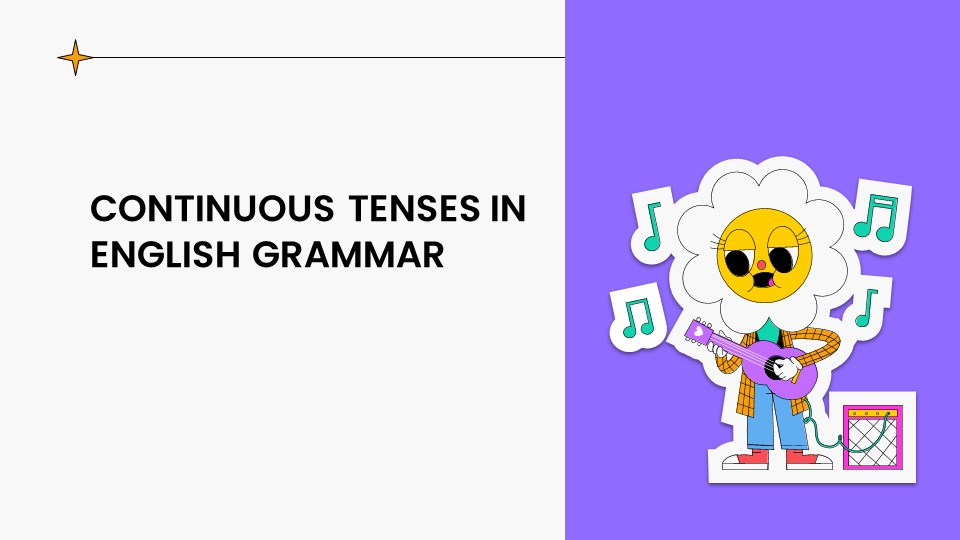
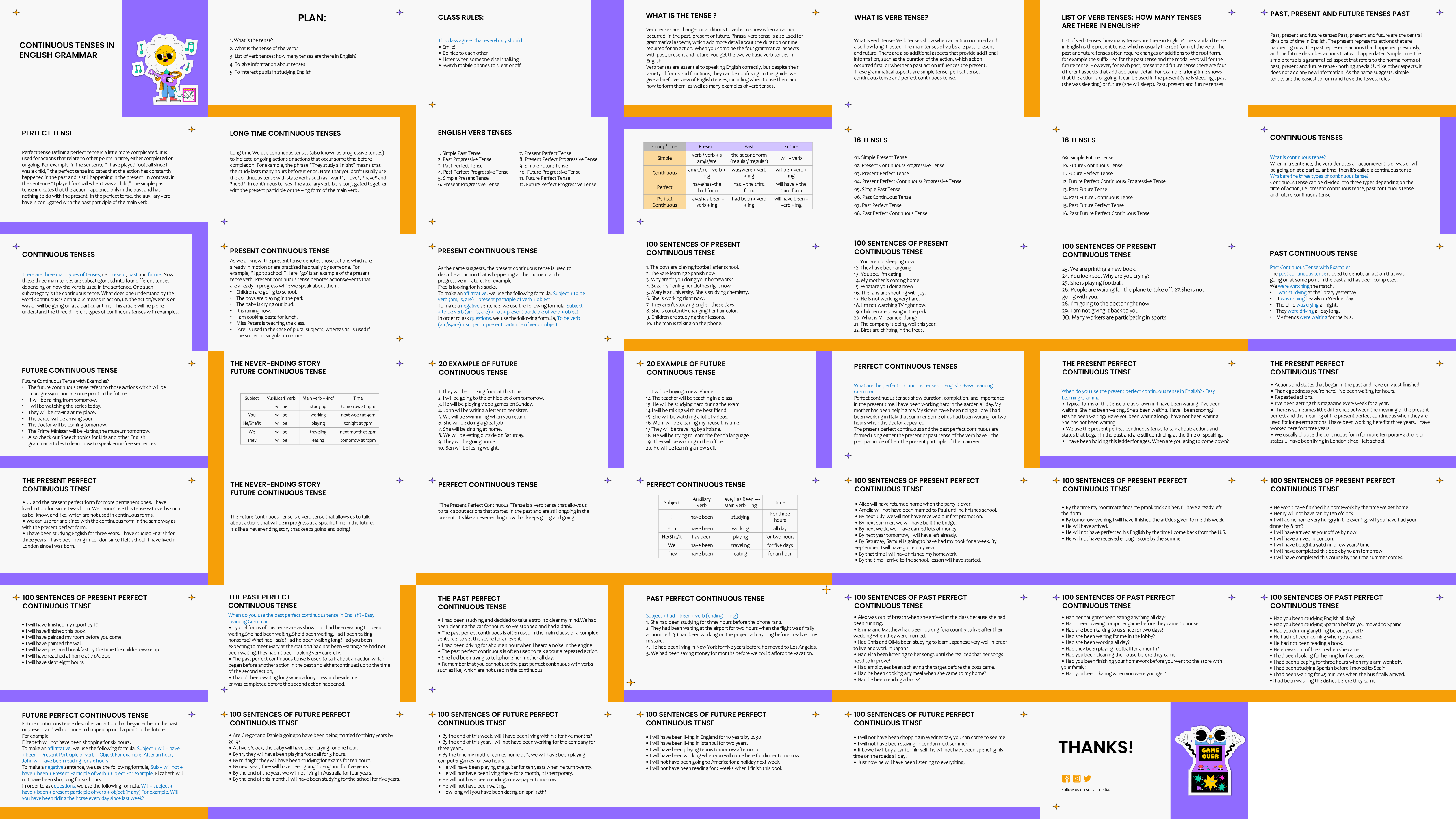



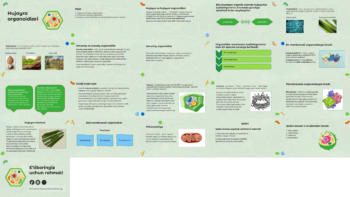








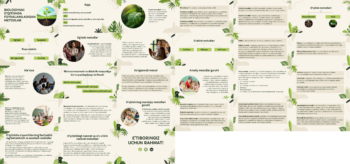

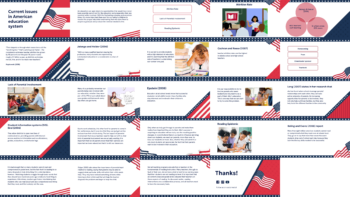



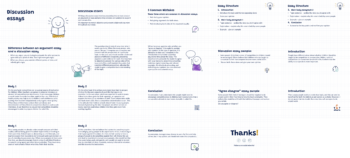
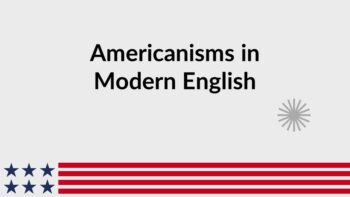
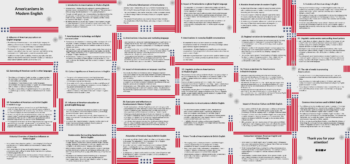

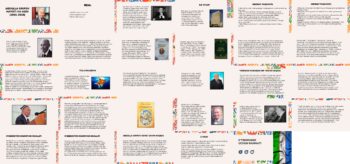
Sharhlar
Hali sharhlar mavjud emas.